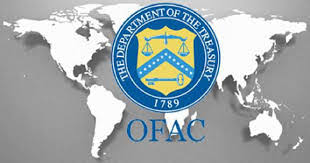2019 OFAC Sanctions Enforcement Review (Part I of II)

While DOJ had its biggest year in FCPA enforcement, OFAC quietly had a record year in enforcement. OFAC collected approximately $1.28 billion (yes, with a B) in 26 separate enforcement actions. That is quite an increase over 2018 when OFAC collected $71 million in 7 separate enforcement actions.
OFAC enforcement is maturing, and its relationship with DOJ is coordinated in much the same way that FCPA enforcement is coordinated between the Justice Department and the SEC.
In fact, on December 13, 2019, DOJ announced its own corporate enforcement policy for export controls and sanctions cases. No longer will DOJ rely on OFAC referrals of potential criminal cases since it is now encouraging companies to self-report directly to DOJ separately from any self-report to OFAC, depending on the nature of the evidence surrounding potential violations.

Under DOJ’s new policy, companies that self-report will receive a non-prosecution agreement, unless aggravating factors are present, and the company fully cooperates and implements timely and appropriate remediation.
Given its new policy, DOJ’s prosecution of individual sanctions cases is likely to increase in 2020 and beyond.
OFAC’s enforcement program has grown with the accumulation of new and complex sanctions regulations, including Ukraine-Russia Sectoral and Oligarch Sanctions Programs, and Venezuela’s Sanctions Program. Aside from the increase in substantive regulations, OFAC has expanded the targets of its enforcement actions to non-financial institutions, i.e. manufacturing companies, technology companies, service companies and a broad mix of the economy. Notwithstanding this trend, however, OFAC brought two major enforcement actions against financial institutions, each of which exceeded totals of $1 billion (yes, with a B) – Standard Chartered and Unicredit. (OFAC shared these large settlements with DOJ, NY Department of Financial Services, and the Manhattan District Attorney’s Office).
OFAC’s enforcement emphasis can be categorized into four basic themes, each of which creates new and significant risks for companies.

The most significant trend, which OFAC emphasized in its Sanctions Compliance Guidance, is sanctions liability for supply chain violations. In typical cases, this translates to OFAC violations for supply chain sourcing from prohibited countries or individuals.
This was underscored by what I would argue was the most important OFAC case of the year – the E.L.F. Cosmetics case (here) in which a U.S. company was found liable and paid nearly $1 million for sourcing of materials from North Korea, even though the U.S. company was not aware that its supplies were sourced from North Korea.
Supply chain risk was specifically noted in OFAC’s Sanctions Compliance Guidance issued in May 2019 in which OFAC identified Supply Chain risks as a specific topic for review in a risk assessment.
Aside from supply chain risk, OFAC brought four major enforcement actions focusing on U.S. company acquisition of foreign companies and failure to terminate ongoing business that violated OFAC sanctions programs. Again, this trend was noted by OFAC in its Sanctions Compliance Guidance and companies are under unique pressures now to identify potential OFAC risks when acquiring companies and integrating these companies into existing sanctions compliance programs.

On the distribution side of business, OFAC enforcement highlighted several cases in which companies were found liable for failing to ensure that third-party representatives and/or distributors did not conduct business with prohibited countries or individuals. Third-party liability is a major sanctions risk and OFAC’s focus on this fact underscored the fact that contractual representations and warranties in a contract with a distributor are not sufficient, by themselves, to mitigate third-party risks.
To round out OFAC’s record-setting enforcement year, OFAC brought a specific enforcement action against a U.S. company for violating the Ukraine-Russia sectoral sanctions, and specifically, the prohibition against debt exceeding specific time limits. In the Haverly case (here), OFAC settled a case in which Haverly extended payment terms for two invoices beyond the then-applicable 90-day limit.
















2 Responses
[…] Volkov takes a look at the year in OFAC enforcement. Part 1 and Part […]
[…] Volkov takes a look at the year in OFAC enforcement. Part 1 and Part […]